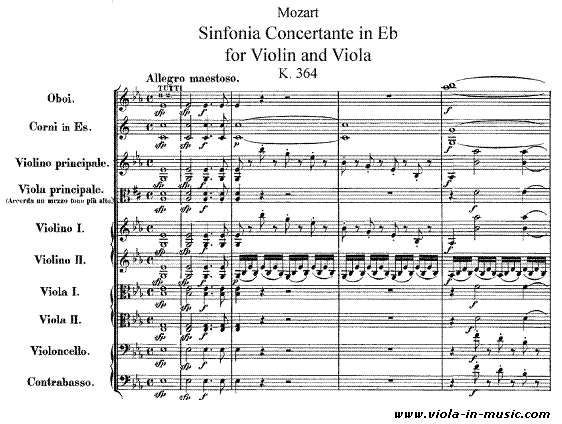What is Orchestration?
1. the arrangement of a musical composition for performance by an orchestra
2. harmonious organization.
The first definition is more informative, because it tells you exactly what orchestration means! It's taking a simple melody and developing it for a larger group of instruments to play (it doesn't have to be an orchestra necessarily). I really like the second definition, though, because I think it conveys what orchestration sounds like-taking a melody and organizing many instruments to play it, giving it harmonies and layers that the original composition may not have had. This is harmonious organization.
Who orchestrates?
 Well, um, the orchestrator does. Go figure. But the orchestrator could also be the film composer or the orchestra conductor as well. Like I said in my previous post, it depends on who's scoring the film and what their preference is. Howard Shore, the composer of the Lord of the Rings music, both composes and orchestrates his music. January composer of the month Danny Elfman, however, just composes the melodies and has an orchestrator arrange the melodies for him. I think this is interesting because it's often the film composer who gets the credit for writing the music when in fact, it might be the orchestrator or team of orchestrators who write most of the actual music you hear in the film. (Not to belittle the composer, though, because coming up with good quality melodies is so much more difficult than it sounds. )
Well, um, the orchestrator does. Go figure. But the orchestrator could also be the film composer or the orchestra conductor as well. Like I said in my previous post, it depends on who's scoring the film and what their preference is. Howard Shore, the composer of the Lord of the Rings music, both composes and orchestrates his music. January composer of the month Danny Elfman, however, just composes the melodies and has an orchestrator arrange the melodies for him. I think this is interesting because it's often the film composer who gets the credit for writing the music when in fact, it might be the orchestrator or team of orchestrators who write most of the actual music you hear in the film. (Not to belittle the composer, though, because coming up with good quality melodies is so much more difficult than it sounds. )  Why orchestrate?
Why orchestrate? Why indeed? After all, what's wrong with a simple piano or a lone violin? Who needs a big complicated orchestra playing in the background of a movie? Well, sometimes you don't need an orchestra! There are situations when orchestration isn't necessary when crafting a score. Maybe it's a low budget indie film and so there's not enough funds to hire an orchestra to play the score. Mostly, it comes down to the director's vision for the tone and feel of the movie. If piano solos fit the tone, then piano solos will be the score. If it's an epic movie that calls for sound to match the dramatic onscreen action, then the score will probably be orchestrated for many instruments to provide a fuller sound.
How do you orchestrate?
When I first started arranging my own music for orchestra, I thought it would be easy. Write a piece for piano, pick instruments I like, distribute the piano chords across them, and boom. It's orchestrated. But I soon found out that it's much more difficult than that. There's tons of things an orchestrator must consider when arranging a composition.
 Say you write a song on the piano. You decide that your piece might sound good played by a full concert orchestra so you decide to orchestrate it. Cool. One of the first problems will be getting the instruments to play together in the same key at the same time. Why? Notes on some instruments do not match up to notes on other instruments. For example, the note C on the violin sounds like a B flat on a trumpet. This means you have to take the music you've written and make sure it's in the correct key for each one of the instruments so that the melody sounds right. If this sounds confusing, that's because it is! Even I don't completely understand this!
Say you write a song on the piano. You decide that your piece might sound good played by a full concert orchestra so you decide to orchestrate it. Cool. One of the first problems will be getting the instruments to play together in the same key at the same time. Why? Notes on some instruments do not match up to notes on other instruments. For example, the note C on the violin sounds like a B flat on a trumpet. This means you have to take the music you've written and make sure it's in the correct key for each one of the instruments so that the melody sounds right. If this sounds confusing, that's because it is! Even I don't completely understand this! Now that you have the keys all worked out, you need to write out the parts for the instruments to play. When you do this, you actually have to write music that's different of your original composition. You have to know the harmonies, the counter melodies, the notes just hanging out the in background, and even the drum beats. You have to decide which instruments get the melody line at specific points in your piece, which instruments are providing harmony, which instruments come in then fade out and when, etc.
You also have to balance the instruments to get the right sound level and to make sure the melody gets heard. For example, you've figured out that you want the violins to play the melody and the trumpets to play the harmony. But, trumpets are naturally much louder than violins, so you need to have the correct balance of sound to make sure the melody gets through the blare of the trumpets. You could do this by varying the number of trumpets playing, maybe 2 instead of 10, or telling the violins to play as loud as possible to make sure they're heard.
What about the tempo, or speed of the music? Well, when you were playing your song by yourself on the piano, you could speed up or slow down whenever you wanted because it was just you. Now, there's tons of instruments that have to all speed up and slow down at the same time. You need to make sure that you write parts that allow for the instruments to change their tempo without sounding like a train wreck.
These are just a few of the problems I've encountered while orchestrating, and I'm sure I could list a few more, but you get the idea. ORCHESTRATION IS HARD! Although, like most things in life, it is made easier today by computers. Aspiring orchestrators like myself can make use of various programs that get instruments in the right key or write out parts for us so we don't have to do it manually. Yay technology!
Well, that's all for today. I hope you've enjoyed reading this post about orchestration :) It's definitely one of the things that I want to get better at in the future, so I've had fun learning more about it by writing about it! If you want to read more about the art of orchestrating, I suggest reading Principles of Orchestration, written by Nicloai Rimsky-Korsakov, who composed Flight of the Bumblebee and other wonderful music. His book was first published in 1922, and it's still one of the definitive texts on the subject! It's timeless. Anyway, thanks for reading, and check back next week for four January score reviews and a peak ahead to the Oscars!

No comments:
Post a Comment